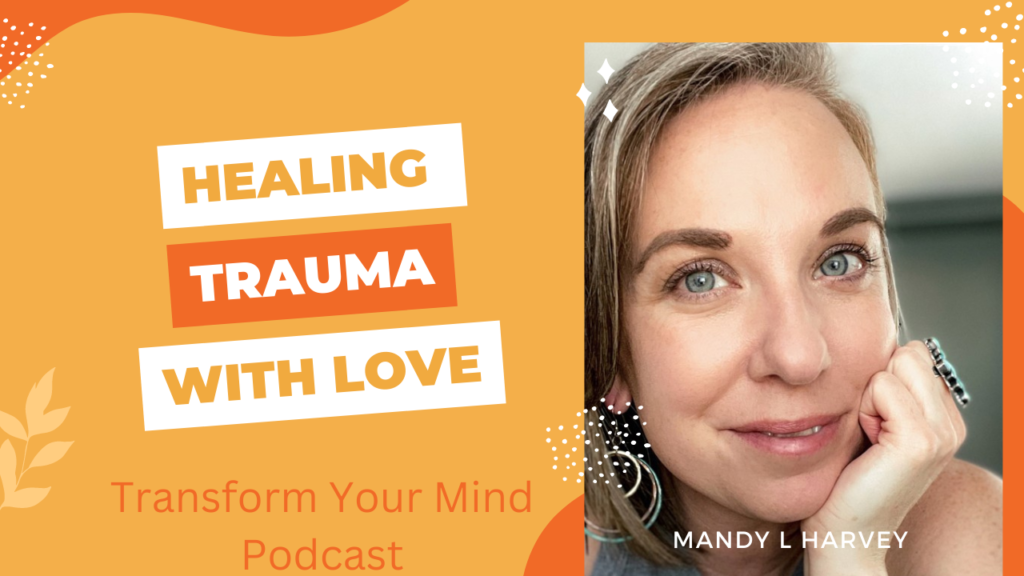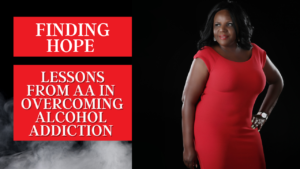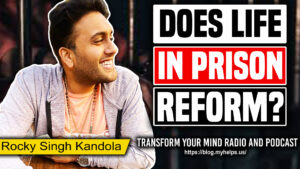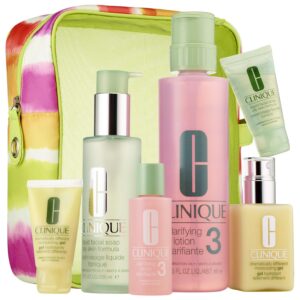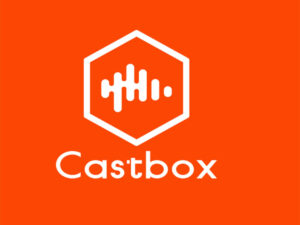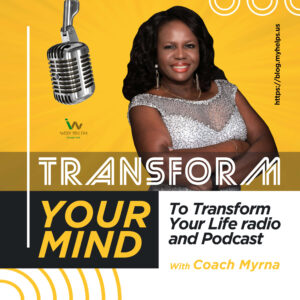When we have, childhood traumas, our natural responses are shut down. We are not able to fight or flee. This activates our, stress hormones. It changes our body and puts us into a sympathetic state, to ready us to fight, flight or freeze; but when we can’t, when we’re impaired, we have to stay frozen in that situation.
Our body’s, stress response, does not shut off. Our hormones continue to be elevated. And so, what happens over time, if we are constantly experiencing that stress over and over, it changes our biology.
In this episode Mandy Harvey shares her, LOVE Methodology, to help us return to the parasympathetic state.
Download the podcast here:
Mandy’s childhood trauma
Myrna: How did you get into coaching?
Mandy: I got into this work because of my own trauma and my own healing process. I grew up in trauma. I was just kind of born into it. I grew up in a home with a single mother who had her own traumas, and as a result that affected my experience with the world. She sometimes was there and sometimes she wasn’t. There wasn’t always love.
She often had men in the house that were very abusive and that abuse was often directed towards me. She remarried a couple of times in my childhood, but at the age of 14, she and the man that she was married to, took their lives, and it was a result of me coming forward sharing with a counselor at school what had been going on in my home as it related to sexual abuse, and emotional abuse.
Myrna: Wow. Similar to my story,
Mandy: So, my whole world instantly changed. I was placed in a home with family members, and, still kind of grew up with family, but I was very deeply affected as you can imagine by that experience. That was the start of therapy for me. And I spent a couple of years in therapy doing, EMDR therapy, work. Really processing the grief, and the guilt, because I felt very guilty.
Myrna; It was just about to ask you that but was gonna wait for you to finish. But yeah, I mean, gosh, that’s huge guilt.
Sponsored AD
Gamers Level up without emptying your wallet. Get Mundus gaming at half price. Our secret shared accounts save big on PlayStation, Xbox and Nintendo Switch games.
Use radio10 for 10% off.
24/7 support and Lifetime Guarantee.
Game confidently at Mundusgaming.com

Feeling guilty for telling
Mandy: I really took on the belief through that guilt, through that process, that I couldn’t trust my intuition, that my ability to make a choice for myself would turn out into disaster. And I held that belief for a very long time, throughout my adult years. But as a child I was trying to navigate this guilt and hit a wall. At a certain point, I just couldn’t talk about it anymore. My body started to ache. Every day I woke up in pain, physical pain, emotional pain, and I just started to get numb, and number and number and it was just like, I had no relation to the world anymore.
All I could see was this grief. It felt like I was being sucked down into this black hole. All I could see and feel was just guilt, this pain of suffering, this thought of I just want to be back with my mom, even though it was traumatic, even though it was abusive and neglectful. That’s all I knew. And for me that felt like love. As crazy as that sounds.
Myrna: How did you come up with the, LOVE methodology, as therapy.
Mandy: Well, it’s something actually it wasn’t, it wasn’t named love. I named this after a year ago doing this work myself.
There was a moment when my daughter, my youngest daughter, she is someone who exudes emotion from one side of the scale to the other side of the scale from like pure bliss and joy to pure anger and rage. I mean, she has a wide spectrum. And anytime she was over in this rage part of her spectrum, I would get so uncomfortable.
One day she was in a moment of pure temper tantrum screaming she was really mad about something insignificant. And I had my back to her and I was washing the dishes and I could feel like a wave of heat moving through my body. And as I was getting higher and higher, I could feel the rage. Like I could feel my jaw gets super tight, like, oh my god, I could just scream at her right now. Like she needs to shut up.
And I’m washing the dishes trying to ignore her. And she’s just letting loose and finally I turned around, I had a glass in my hand and I threw it at her feet and I said :SHUT UP” she was shocked. That was the first time I’d ever screamed at her. And the look on her face was just fear.
Sponsored AD
Journy: Life Goals & Self-Care app is a personal growth and self-care app that helps you create goals and track your progress. Journy provides a daily devotional with educational and inspirational content. Journy allows you to save goals and use Affirmation Meditations to affirm your personal progress.
Save personalized notes on categories of learning and improvement, easily watch educational content across a spectrum of categories with recommended reading. There are also routines in the app to help with planning and organizing.
Journy: Life Goals and Self-Care app seeks to help people of all walks of life in their everyday life to maintain a sense of control, through organization, personal development, and self-care while creating a sense of community through volunteering by giving a portion of your $4.99 monthly or $29.99 annual subscription to Kids-in-need foundation and refugees in need. Download Journy: Life Goals & Self-Care AP on Apple App store or Google Play Store, now!
iOS link
https://apps.apple.com/us/app/journy-life-goals-self-care/id1640697055
Google play link
https://play.google.com/store/apps/details?id=com.affirmedme.journyApp&pli=1

What is Somatic Experiencing
I started crying. She was crying. She’s like, I’m so sorry. I’m a bad person. I didn’t mean to upset you, you know like, so we’re trying to pick up the glass and I’m crying and thinking like, what is happening? What is going on in me that I immediately revert it like this feeling what is this feeling in my body so I sought out, Somatic Experiencing, therapy work.
Myrna: Did you stop your original therapy at this point?
Mandy: Throughout my adult years, I had been in therapy off and on. So, at this point in time, I had not been to therapy in a while, but over the last 20 years I’ve been through multiple forms of, talk therapy, processing my abuse, processing the anger towards my mom, processing my childhood over and over again. But this was a whole different level.
And this is why I knew I needed something different because I’ve been talking about my story for 20 years and I can intellectualize it really simply and be like I know this is why I’m upset and you know that I’m like doing the job for the therapist. Right? But this was like a whole different level of awareness that somehow, I was holding more in my body than I was able to reach through just talking; because our body has a different story than our minds do about what happened to us.
Sponsored Ad
Looking for a scientifically tested and strategic way to improve your mental health? Then it’s time for you to download Neurocycle, the world’s first and only brain detox app! Neurocycle is a step-by-step program that you do over 63 days to identify and unwire toxic thinking habits, trauma, and limiting beliefs. The app doesn’t just help you MANAGE INTRUSIVE THOUGHTS, it also helps rebuild healthy new neural networks in your brain.
The Neurocycle app also includes mini guides for in-the-moment challenges, such as a guide to help you work through panic attacks, and a guide for parents to use with kids. Struggling with sleep? Neurocycle also has a guide to help you fall asleep quicker, and stay asleep longer!
For a limited time, get 50% OFF your first month’s subscription with transform. Go to Neurocycle.app– and use promo code transform so they know we sent you!

Releasing childhood traumas with meditation
Myrna: So true, I do this meditation from Dr Joe Dispenza about getting the mind out the body. Actually moving the energy up through the nervous system to the head. It is the Kundalini rising.
Mandy: It makes a lot of sense. We all have traumas that we hold in our bodies, we may not even really be aware of that influence, how we show up our behavior, our thoughts, our actions. But for me, it was once I started that Somatic therapy for about two and a half years. I healed more than I did in the previous 20 years of just talking about it. And it really gave me the tools to understand how to connect to my body, because up to that point. I was like a head, walking around in the world. I had disconnected from my body.
Myrna: So, how do you how do you heal women or help them heal from a stress and trauma using your, LOVE methodology?

What is the Love Methodology
Mandy: The methodology called LOVE is an acronym. It’s four steps, it stands for:
- Listen- Listen to the thoughts, the beliefs that you that run through your mind on a consistent basis.
- Observe – observe where you hold them in. Example your body. Where’s the predominant location where you hold that thought of, I’m not worthy, or I’m not good enough or whatever that thought is?
- V is for validated. So oftentimes, we are not taught to validate our emotions or experiences, which sometimes this is a hard step for people, but this is all about, if I feel that unworthiness in my heart space, you know, it’s about teaching people how to have compassion for that part that’s feeling very unworthy and very unseen. It’s giving them a language to tap into that part of them. So, they can make a connection and start to repair and build trust and heal that part and integrate it back into their core self. Use experience. So, experience, meaning or sorry.
- E is embrace with love. So, what does that part need? Tune into that part, that’s feeling unworthy, that’s feeling very heavy in my chest. And I get a validation and say, You’re right, I can understand why you feel that way. What is it you need from me right now? That kind of sounds a little weird to talk to ourselves like that. But our bodies full of wisdom and insight into what we need in the moment.
So, if it’s like, I need a hug. Let’s go find someone who can really give you a hug or give yourself something else. Like I need to just sit outside or maybe take a walk, going to walk Great. But it’s in the process of meeting our needs. In the moment learning how to ask for what we need and meeting those needs starts to build up trust again.

How to talk to ourselves with LOVE
Someone who’s been traumatized and holds a lot of stress and anxiety in their body, and most likely be in a sympathetic nervous system state. In order for us to heal and go deeper into some of the traumas. We must slowly help our nervous systems to release that trauma.
Myrna: So, what is the language that we’re using?
Mandy: Well, the language is a little bit different for everyone. And what I mean by that is, my nervous system talks to me in a very specific way. And that might be different than how your nervous system talks to you. So, this is all about first getting people comfortable with recognizing they have a body that’s feeling.
So, for me, anytime I’m stressed my guts, my stomach gets so bloated and in intense discomfort. And the instant I feel that sensation. It’s like a switch. I’m like, oh no, I’m feeling stressed right now. Okay, I need to take a minute to acknowledge that you know, reflect what’s really making you stressed right now. Or when I would feel like it wasn’t safe for me to speak up. I would feel it in my throat. I would feel like I can’t swallow.
Childhood traumas and autoimmune disease
Myrna: What is the connection between, Childhood Traumas, and chronic health disease?
Mandy: Yeah. So, when we’re a child, and you know, our natural responses are to fight flight or freeze. And when we’re tired if we’re in an environment that’s abusive, or traumatic, and I’ll just use mine as an example, if you are sexually abused, I was not able to fight or flee. This activates our stress hormones. It changes our body and puts us into a sympathetic state, to ready us to do those things and fight flight or freeze but when we can’t when we’re impaired and we have to stay frozen in that situation.
Our body’s natural processes don’t shut off. They continue to be elevated. In that stress response. And so, what happens over time, if we are constantly experiencing that stress over and over, it changes our biology, in that we become more sensitive to stress we get stressed faster and faster and faster every time that happens.
And it starts to create this low-grade stress response in our bodies and in our brains and sort of affects not just our physical body, but it changes the neuro chemistry in our brain, because of that constant assault. The, stress hormones, are running through our bodies through childhood and then into adulthood, where we have maybe more responsibilities or even more things that we have to be worried about. And starts to really degrade our system because the, stress hormones, are meant to be short bursts to help us get out of that environment, they’re not meant to be long term.
So just like you were saying that inflammation over time, deteriorates our gut health, deteriorates our immune system, deteriorates our ability to digest foods.
The stress response to traumas
Myrna: a little bit more about your work, the LOVE methodology, the soothing way to heal many traumas, tell our listeners where they can connect with you and the kind of trauma that they need help with. Talk about your website, talk about your social media handles, and this is the time where we talk about your work.
Mandy: Awesome. Thank you. Yeah, I do I share that, LOVE methodology, in a few different ways. So, I do corporate speaking, I love to reach out to companies who are interested in helping develop their employees through health and wellness. Helping them manage their stress, learning how to regulate their nervous systems. And in those talks, and in those workshops, I often share this, LOVE methodology, because it’s something very simple. You can do even at work. You can do it for five minutes. You can do it longer, but it’s an empowering tool that can help you start to take control over experiences that you feel like you don’t have control.
And it can help you try to limit and shift how you are triggered in the workplace. So that’s one place in which I share that. And then I also work one on one with people and do healing sessions. And so, in those healing sessions, we will leverage this methodology sometimes in one session. And other times maybe it’s introduced over a series of sessions to emphasize that. And then here locally where I’m at I do guided hiking sessions where we hike and heal. I’m in Colorado.
What I would like to share with your audience is on my website, free downloads, video and a workbook that goes over this, LOVE methodology. So that’s on the front page of my website. My website is www.Mandylharvey.com. My Instagram is @MandylHarvey
Additional Resources
What is the Connection Between Childhood Trauma and Autoimmune Disease?

